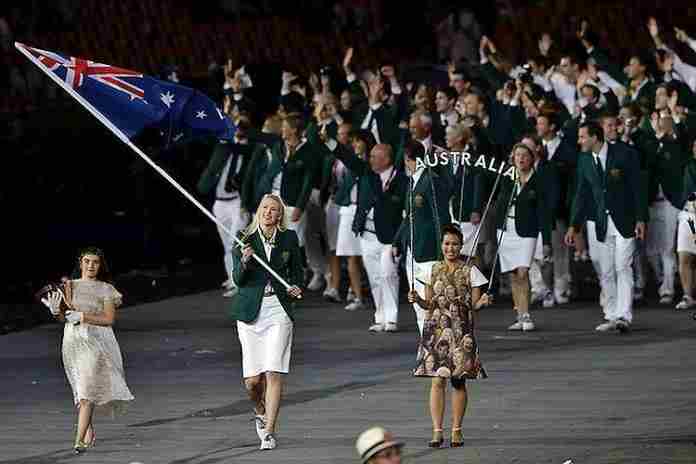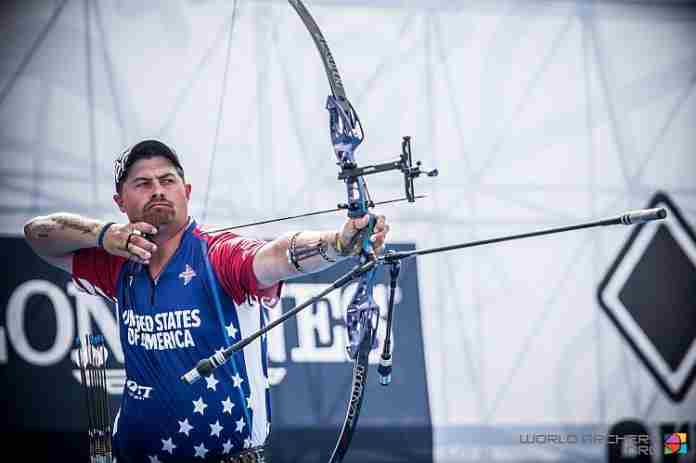A fascinating fight over Australia’s potential bid for the 2032 Olympic Games has developed that could test the public’s view of the event, thanks to an insurgent protest from one of the country’s tiniest political parties and most controversial politicians.
Until last week, the State of Queensland’s interest and efforts to land the 2032 Olympic Games has been essentially unopposed. Economic studies had been done and the Australian Prime Minister (Scott Morrison, from the right-of-center Liberal Party) and Queensland Premier (Annastacia Palaszczuk, from the left-of-center Labor Party) had been mostly in sync on pursuing the Games. The Queensland Council of Mayors has also been in support and the Games would be centered in Brisbane and Gold Coast, both of which have hosted the Commonwealth Games.
Palaszczuk had led a delegation to Lausanne to meet with the International Olympic Committee, including President Thomas Bach (GER), who was highly complimentary of the area and the possibility to host a future Games in the region.
The plan has been to more fully develop the Queensland bid and present a comprehensive plan to the IOC at the Tokyo Games this summer, in the hopes of being named as a consensus candidate in 2021, eleven years ahead of the event. Queensland’s efforts have overshadowed (and so far, outdistanced) possible bids from elsewhere, including from Germany, Indonesia, India and other countries.
But now, there is a loud naysayer in the mix.
That would be Pauline Hanson, founder of Pauline Hanson’s One Nation party, described as having a “strongly nationalist platform”; the Wikipedia entry states “Hanson and other party members have denied claims that the party is racist.”
Hanson herself has been in and out of Australian politics since 1994 and is currently a Senator from Queensland. Last Thursday, she announced the launch of a Queensland-wide advertising campaign – at least 50 billboards, not much in an area twice the size of Texas! – that features her picture and the slogan “2032 Brisbane Olympics, regional Queensland says NO.”
Always a media magnet, Hanson’s comments were widely carried by the Australian press:
“The feedback I’m getting from everyday Queenslanders is that they’re not interested in hosting the Olympics, and instead would prefer the money be spent on drought-proofing the state.
“Stuff spending tens of billions on stadiums and entertainment centres across Brisbane, the Sunshine Coast and Gold Coast. The people want water projects like a hybrid version of the Bradfield Scheme so that towns right across Queensland don’t run dry ever again.
“The decision to chase the Olympics, despite having no idea about the costs, while ignoring the many other desperate needs of the people, is irresponsible, selfish and shows an extreme lack of leadership from both Annastacia Palaszczuk and Scott Morrison.”
The pushback from the Queensland government was swift. A spokesman for Palaszczuk told reporters:
“The IOC will pay some $2 billion for the cost of the Games, so they are revenue neutral. It’s not about the few weeks competition, it’s about the years leading up to it and the years after: 10 years of preparation and 10 years of celebration.”
Asked about Hanson’s campaign: “It’s nonsense. Pauline sows divisions when we need unity, that’s her whole way being. We have local, state and federal governments agreeing on something; that’s pretty rare and they are all working together to deliver this and the beneficiaries are the people who get the jobs.”
Palaszczuk’s statement of intentions for the Games issued last December maintained that the economic study completed last year showed the potential for 130,000 new jobs, increased tourism and as much as A$8.6 billion in new trade opportunities.
Now let’s take a step back and look at the relative standing of the players. The Australian Federal Government has 151 total seats in Parliament and 76 seats in its Senate:
● Governing: Liberal Party/National Party, with 77 MPs/35 Senators
● Opposition: Australian Labor Party, with 68 MPs/26 Senators
● Pauline Hanson’s One Nation: 0 MPs/2 Senators (including Hanson)
In the Queensland Legislative Assembly (one chamber only) with 93 total seats:
● Governing: Australian Labor Party: 48 seats
● Opposition: Liberal Party/National Party: 38 seats
● Pauline Hanson’s One Nation: 1 seat
(There are smaller parties in both governments which are not aligned with either of the two large parties.)
So, Hanson is a true outsider, having been dismissed from the Labor Party prior to the 1996 elections for comments that “advocated the abolition of special government assistance.”
The highly-respected GamesBids.com site notes that “Since 2013, nine straight public votes have been lost, spelling the end to Olympic bids.”
Hanson’s statement noted further that “I have written to Scott Morrison and told him to abandon this ill-conceived idea and I commit to the people of Queensland that if One Nation has any say after the next state election, we will pull the Olympics bid ourselves.”
Queensland has elections in October and based on past results, One Nation will have nothing to say – again – about this decision in Queensland, or any others.
But Olympic bids have been abandoned due to insurgent political pressure multiple times over the past decade, and this new dust-up in Australia presents the latest test of the completely-revamped selection process created by Bach and his new-look IOC. Under the new, “dialogue-based” process to select a host city for an Olympic Games – created under the leadership of Australian IOC member John Coates – the responsibility for ensuring political agreement behind the bid, including any possible referendum, is with the bidder, not the IOC.
Could this be the perfect opportunity to end the Olympic bid losing streak, in a vote in a sports-mad country which – given its location on the globe – needs to continuously remind people it’s around?
Hanson’s effort to stop the Queensland 2032 bid project is unlikely to succeed, especially since 80% of Queensland’s population lives in the state’s top six metropolitan areas, bound to receive the most benefits from a Games being held there. But in a new bidding environment, will the old saw of “waste of money” still resonate?
Rich Perelman
Editor
You can receive our exclusive TSX Report by e-mail by clicking here. You can also refer a friend by clicking here.

























